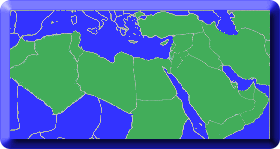
Topics in Middle Eastern and North African Economies
Document Type
Article
Publication Date
5-1-2019
Journal Title
Topics in Middle Eastern and North African Economies
Volume
21
Issue
1
Publisher
Middle East Economic Association and Loyola University Chicago
Abstract
Social networks and social media mobilizing them have been highlighted in relation to the Arab Spring events of 2011. Social capital is also an important factor in MENA region economies, begetting business opportunities in imperfectly connected markets subject to red tape barriers, facilitating trust in the absence of formal enforcement mechanisms, and enabling the matching of workers and employers. However, ‘wasta’ also leads to inequality of opportunities for disenfranchised firms and workers. Our study sheds light on the role of social capital by imputing MENA workers’ social capital and assessing its impact on workers’ economic outcomes. Using extensive individual-level data from the World Values Surveys pooled across 14 countries and years 1999–2014, we impute social capital stochastically by Bayesian clustering, based on workers’ club memberships, volunteering, trust, sense of belonging, and perception of own sociability. We then describe the distribution of MENA-region workers’ social capital, including intertemporal trends in 6 countries. Least-squares and ordered probit regressions link workers’ type of social capital, instrumented, to their economic outcomes. We find that a cluster of workers with a sense of belonging with respect to personal and social relationships have a higher probability of attaining employment and higher incomes. As expected, being literate and more educated enables individuals to join the highest income groups and reduces their probability of falling into the middle or lower income groups. Income differentials based on education are stark – a certain level of education appears to guarantee workers a certain level of income. Positive subjective perceptions about one’s social class and health status are also associated positively with workers’ economic activity level and earnings. Workers in private nonprofit organizations tend to end up in the lowest income group. We do not find gender gaps in economic outcomes, which warrants further investigation.
ISSN
2334-282X
Recommended Citation
Lee, Jieun and Hlasny, Vladimir, "The Effect of Social Capital on Individuals’ Economic Outcomes in the MENA Region". Topics in Middle Eastern and North African Economies, electronic journal, 21, 1, Middle East Economic Association and Loyola University Chicago, 2019, http://www.luc.edu/orgs/meea/
Creative Commons License

This work is licensed under a Creative Commons Attribution-Noncommercial-No Derivative Works 3.0 License.
Copyright Statement
© 2019 The Authors



Comments
Presentation of the articles in the Topics in Middle Eastern and North African Economies was made possible by a limited license granted to Loyola University Chicago and Middle East Economics Association from the authors who have retained all copyrights in the articles.